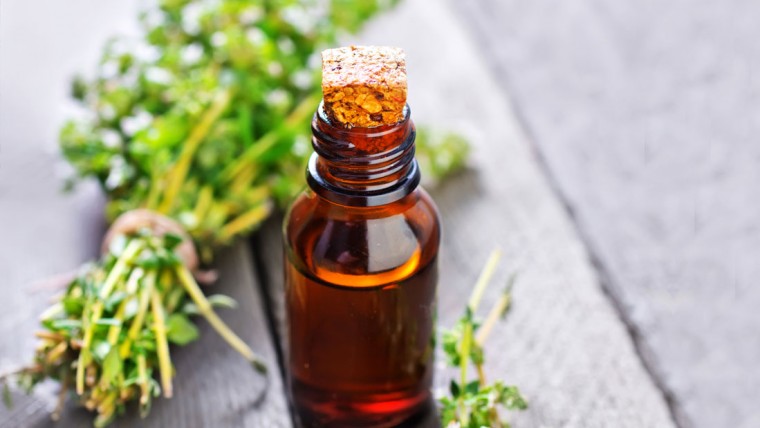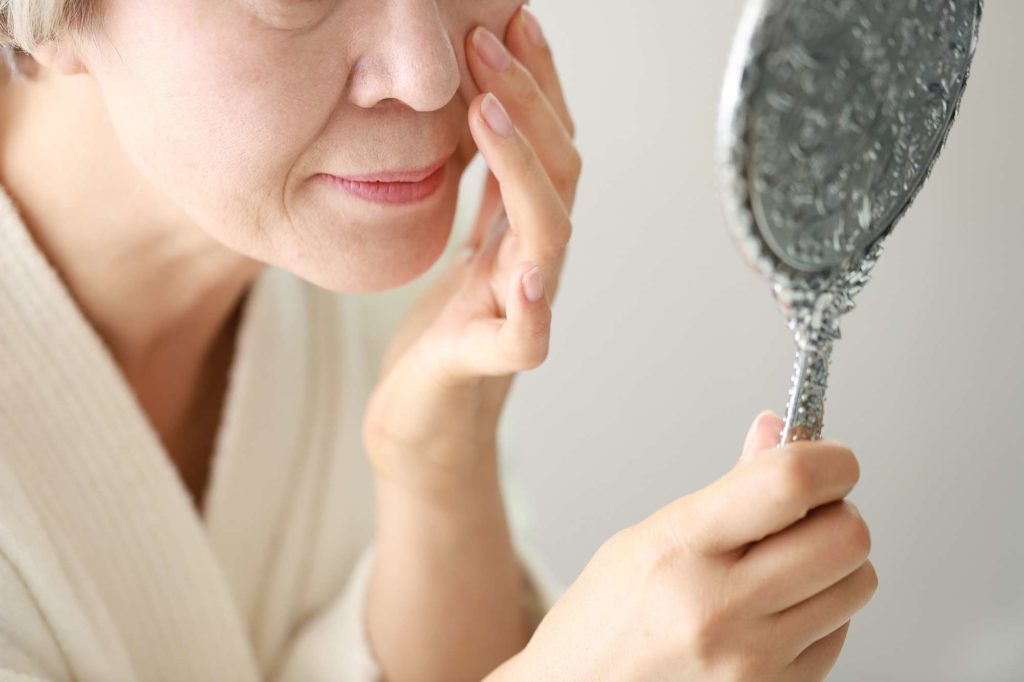Table of Contents
Hormones are responsible for the proper functioning of our organs and overall health. If there’s a hormone imbalance, our life is worsening. We become weak and ill and can’t enjoy our life anymore. One of the important hormones produced in our body is the growth hormone (HGH). When the levels of HGH are optimal, we have a great metabolism and a strong heart, enough physical energy, and normal libido.
Because HGH is so beneficial, and most importantly, because we lose it with aging, there’s a wide market of HGH supplements, promising to increase HGH levels. However, it’s best to analyze the evidence before taking any pills. In this article, we discuss how to increase HGH in a natural way and the effectiveness of such an approach.

It’s worth mentioning that natural approaches for boosting HGH may restore hormone levels only for healthy people. Some medical conditions such as cardiovascular diseases or growth hormone deficiency require personalized treatment. We strongly recommend speaking to your practitioner, before trying to increase HGH naturally.
The biology of growth hormone
Understanding how our body produces HGH puts light on why natural ways to boost HGH are efficient for most adults. Growth hormone is a protein molecule that controls cell production and regeneration in our body. The pituitary gland and hypothalamus are responsible for GH secretion. Growth hormone, in turn, stimulates the production of Insulin-like growth factor 1 (IGF-1), which also has anabolic effects. Besides, growth hormone increases glucose levels in the blood. HGH has several natural stimulators and inhibitors.
Among HGH stimulators are ghrelin (or ‘hunger hormone’), sex hormones, insulin, and more. The Main HGH inhibiting factor is negative feedback on the pituitary and hypothalamus, which regulates GH and IGF-1 concentration. Hyperglycemia can also suppress HGH secretion. As we’ll see later, most of the approaches to increase HGH naturally are aimed to balance sugar levels in the blood.
How to increase HGH naturally
Growth hormone plays a prominent role not only in childhood and adolescence. Adult people also need to have HGH at optimal levels to be healthy and happy. Human growth hormone is responsible for:
- tissue regeneration,
- thyroid gland functioning,
- lipolysis and calcium retention,
- and muscle growth.
With aging, the HGH levels decrease. When a person reaches mid-life, HGH levels decrease by 15% for each decade. Such decline is irreversible and leads to increased fatigue, weight gain, loss of muscle strength, and bone thinning. Hopefully, there are natural ways to slow this process down. Maintaining a healthy lifestyle is key to naturally stimulating growth hormone secretion. For example, studies show that extra belly fat may indicate GH imbalance. Losing extra abdominal fat improves natural HGH release in the long term. Other ways to boost HGH naturally include keeping a diet and sleep regimen, training, and more. Let’s look at them in detail.

Diet and sleep
Anytime we consume food the sugar levels in the blood increase. Increased glucose in the blood after the meal stimulates the hypothalamus to produce HGH inhibitors such as somatostatin resulting in suppressed HGH levels. Some diets exclude one or more nutrients to attain health benefits, but with HGH such an approach doesn’t work. Eating only carbs, or proteins or fats still increases sugar levels and suppresses HGH secretion.
Low-carb and ketogenic diets don’t show any significant and short-term benefits on growth hormone release, and long-term effects are yet to be studied. Besides, some studies show eating high-fat meals increases the levels of fatty acids, which also suppress natural HGH secretion.
It’s to be said, anytime we eat, the HGH release is inhibited. In addition, consuming alcohol significantly suppresses HGH production. Scientists thou investigate what micro-and macronutrients can increase GH levels. It has been discovered that vitamin C induces HGH secretion peaks. Still, there’s a lack of understanding of the explicit mechanism of HGH stimulation by micro and macronutrients.

Keeping from eating food for a while, on the contrary, improves the production of growth hormones. Studies reveal that fasting for 24 hours boosts the amount of released HGH twice. More prolonged fasting such as for 56 hours promotes a 5-fold increase.
Intermittent fasting (IF) shows an increase in HGH levels. This dietary approach leverages abstaining from food for several hours a day or days per week. Scientists reveal that during only water days of fasting the levels of HGH increase. The increase is observed both in men and women.
IF regimens can be alternating (1-day fasting/1-day eating), weekly (5 days eating/ 2 days fasting), or daily (16 hours fasting/ 8 hours eating). Fasting for more than 2 days can be harmful to your health and should be avoided. Dry IF implies restricting food and water intake, but there is a lack of evidence to consider dry fasting a safe and effective diet. Before trying any diet, consult with your doctor.

Deep sleep promotes HGH synthesis. Most HGH release peaks fall at midnight and early morning sleep. Studies reveal that slow-wave or deep sleep induces the highest GH release. Therefore, maintaining sleep hygiene is crucial for growth hormone production.
If a person suffers from sleep deprivation, the organism will compensate for hormonal balance by boosting HGH production during the day, but it will lead to organism exhaustion.
The loss of slow-wave sleep can be caused by:
- depression,
- stress,
- chronic pain,
- alcohol dependence,
- epilepsy,
- aging, etc.
Improving the quality and quantity of night sleep can normalize HGH levels in your body. If you experience insomnia, consult with the doctor to find out the reasons for sleep disturbance and receive appropriate therapy for your condition.
Physical activity
Growth hormone levels increase shortly during physical activities. But doing sports regularly can boost HGH production for a long time. Several studies report that HGH synthesis increases 4-6 fold during a training session. Working out systematically helps our body to release extra energy received from food. If we maintain an optimal caloric deficit, we lose fat. As we spoke earlier, reducing extra adipose tissue leads to increasing HGH naturally.

Studies show that anaerobic exercises such as high-intensity interval training, sprinting, resistance training, and others are more effective than aerobic ones for HGH stimulation.
Positive results were observed in physically healthy people, in addition, in men, the production of growth hormone during exercise appeared to be higher than in women. For people with contraindications to intense training, this method of increasing HGH production will not be effective.
HGH supplements
Some supplements are advertised as HGH enhancers. Most of them are amino acids that can be found in different products and serve as protein structural elements.
However, amino acids received directly from supplements can trigger various receptors.
One of the amino acids considered an HGH booster is an arginine. Some experiments conducted in vitro suggest that arginine promotes HGH production, still, there’s a lack of tests in people. Moreover, scientists imply arginine may weaken HGH release if taken during training sessions.
Other amino acids such as phenylalanine, ornithine, and glutamine also show weak and short-term influence on HGH release. Besides, combining amino acids doesn’t show any perspective to increasing HGH production.
Food supplements usually are promoted by sportsmen as a great way to induce muscle growth. For example, beta-alanine is a famous sports supplement associated with positive effects on HGH secretion. However, studies report no significant effect of beta-alanine on the hormonal system.

Other supplements, vitamins, or minerals may pose a positive effect on HGH production, but usually, those effects are indirect and short-term. For example, melatonin affects HGH release indirectly, by improving sleep, or B6 vitamin by promoting gluconeogenesis.
Can testosterone increase HGH?
The relationship between testosterone and growth hormone levels has not been scientifically established. However, evidence from testosterone replacement therapy (TRT) studies indicates testosterone may stimulate HGH production. Testosterone replacement therapy promotes elevated HGH and IGF-1 levels. Still, TRT should be prescribed by a practitioner and can’t be considered the main way to boost HGH.
Losing extra body fat, on the contrary, appears to be a natural way of balancing testosterone and growth hormone levels. Several studies show that losing weight for obese people promotes testosterone increase.
Dieting and exercise are healthy options to adjust both testosterone and HGH levels. Still, losing too much adipose tissue may result in lowered testosterone. Studies report rapid loss of body weight reduces testosterone.
Exhausting training in combination with dieting or rejection of several nutrients can lead to a quick loss of lean body mass and affect GH and testosterone levels. It’s best to stick to a moderate diet and exercise regimen to maintain optimal testosterone and growth hormone levels.
Unconventional ways to stimulate GH secretion
Scientists also turn their attention to alternative methods of triggering HGH release. Some of these methods include the use of heat and sound, consuming several medications and herbs, etc. Few of them are promising but still require careful examination before we can consider them effective. Among unconventional HGH boosters are:
- Binaural beats. The technique implies a person listens to 2 tones with different frequencies separately, each through one ear. Such an approach creates an illusion of a third tone, in which frequency is a difference between primary beats. Certain studies tell binaural beats improve cognitive function, promote relaxation, and better sleep. Potentially, listening to binaural beats could raise HGH levels, but still, there’s a lack of studies to support this idea.
- Saunas. The idea of sauna increasing HGH secretion is based on how our body reacts to heat exposure. However, there isn’t enough research to consider this approach effective.
- Type 2 diabetes medications. Some medications such as Sitagliptin induce a short-term HGH enhancement. But taking medications without a prescription can lead to unwanted adverse effects and should be avoided.
- Herbs as natural supplements. Experiments in animals reveal several herbs such as cistanche or tokishakuyakusan stimulate HGH release, but no clinical trials in humans were conducted and the herb’s safety and effectiveness for humans remain unknown.
Reasons for HGH decrease

The levels of growth hormones in our bodies change as we grow and get older. HGH levels are the highest during puberty when our body requires a lot of resources to grow bones and muscles. After the 30s the HGH levels decline to the range our body needs for maintaining vital functions. The reasons people can significantly lose growth hormone include:
- head injury,
- surgical intervention,
- brain or pituitary tumors,
- hormonal imbalance related to the hypothalamus,
- infections,
- poor blood supply to the brain,
- radiation therapy, etc.
Low levels of growth hormone lead to growth hormone deficiency. GH deficiency can be acquired or congenital. It’s a severe condition that includes the following symptoms:
- anxiety and depression,
- hair loss,
- sexual dysfunction,
- muscle loss,
- increased fatigue,
- developing diabetes,
- abdominal weight gain, etc.
Different people can have fewer or more GH deficiency symptoms. Fortunately, some exams and tests help practitioners effectively diagnose this condition. Blood tests, x-ray scans, and MPI can be prescribed by your doctor to examine our organism. If you want to know more about your HGH levels, fill out the contact form and our experts will consult you.
How to treat HGH deficiency

Nowadays, the Food and Drug Administration approved only injectable therapy to treat HGH deficiency. Human growth hormone is a protein whose molecule is big enough and can be successfully administered only via injections. Taking oral HGH is less effective than injections as the growth hormone can be ruined by the digestive system. Growth hormone medications are available only by prescription, so before thinking about increasing your growth hormone levels with injections, consult with your practitioner or try natural HGH boosters. If you want to know if injectable therapy is right for you, contact us and get a professional consultation.
Wrapping up
Growth hormones play a prominent role in our everyday life. Having HGH levels at optimal levels allows us to live a joyful and active life. As we age, HGH levels inevitably decrease. Luckily, scientists try to find methods how to increase HGH production. The research has shown that adhering to a healthy lifestyle such as receiving quality sleep, doing physical activities, and dieting helps to maintain HGH at optimal levels.
Besides, fasting and losing body fat are the most efficient ways to boost HGH secretion. Natural supplements and testosterone therapy appeared to be less effective in boosting HGH. Significantly low levels of HGH cause HGH deficiency which can be treated only with injections prescribed by a doctor.


